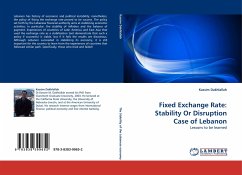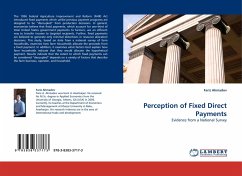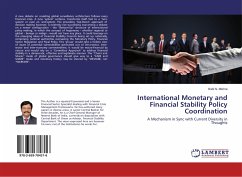Lebanon has history of economic and political instability; nonetheless, the policy of fixing the exchange rate proved to be success. The policy set forth by the Lebanese financial authority aims at stabilizing economic activities; in particular, the stability of inflation and the balance of payment. Experiences of countries of Latin America and East Asia that used the exchange rate as a stabilization tool demonstrate that such a policy if successful is viable, but if it fails the results are disastrous. Although Lebanon succeeded in stabilizing its economy, it is still important for the country to learn from the experiences of countries that followed similar path. Specifically, those who tried and failed!
Bitte wählen Sie Ihr Anliegen aus.
Rechnungen
Retourenschein anfordern
Bestellstatus
Storno








